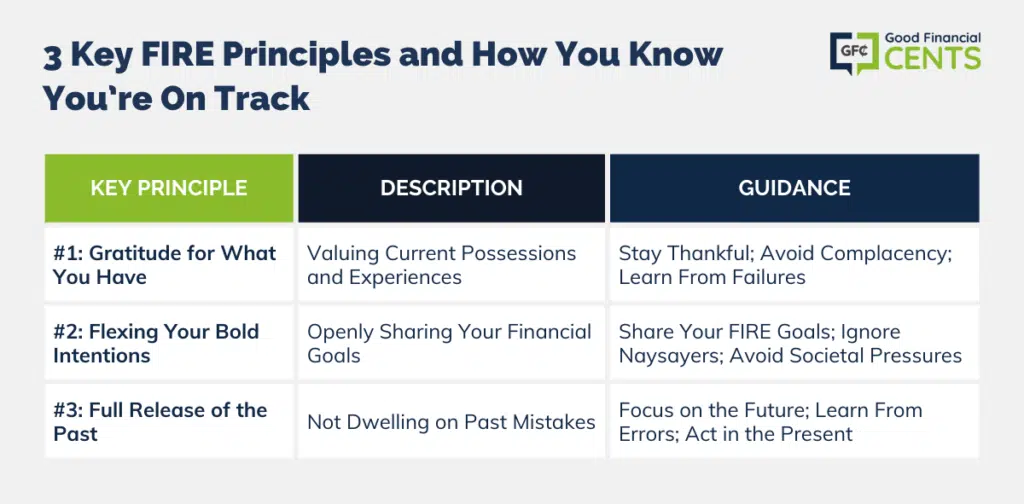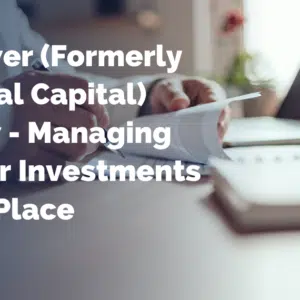Although enduring the pandemic has been stressful, to say the least, I have learned a multitude of lessons I’ll never forget. One of the biggest is that, like it or not, I’m not cut out to homeschool four kids while trying to work at home. Most of all, though, the pandemic has reinforced my feeling of gratitude for the life I live — and the life my family lives.
For example, when schools began shutting down and the whole country went into lockdown, neither my wife, Mandy, nor I had to miss work or struggle to find childcare. When I work on my blog, my podcast, and other ventures in my home office, my wife already stays home with the kids and has done so for several years.
And when the economy stalled, and the stock market dropped like a rock, we never had to wonder how we’d pay our bills or what the future might hold. After all, we have a fully stocked emergency fund and plenty of passive income streams that aren’t tied to an employer or the stock market on any given day.
The bottom line:
Teaching My Kids About Financial Independence
Anyway, part of me has always worried that my kids wouldn’t get to learn the same financial lessons I did — at least, not in the same way. Because of the situation we’re in, my kids have never really lived in a modest home, and they have never had to go without. They have never been in a situation where we are trying to stretch the groceries for another week until payday, and in fact, the pandemic has made us rely a lot more on takeout and food delivery than we normally do.
Regardless, I recently took some time on one of our homeschool days to map out what it takes to run and pay for a household for my kids.
Writing It All Out
On a giant whiteboard in my office, I created a list of most of our household bills — our mortgage payment, transportation expenses, phones, gas, insurance, utilities, and all of the taxes we pay. In another column, I wrote out a rough example of the amount of income it would actually take to cover those bills.
From there, I talked with the kids about our household wants or stuff they prefer to have. My kids went ahead and added shoes to the list, an Xbox, and some dolls.
At one point, the kids started asking questions about where the money for our bills actually comes from. I explained that while I continue working on my podcast and blog and other business ventures, the majority of our income is mostly passive — as in, I am not actually working for it, and I am no longer getting paid by an employer.
At that moment, I began explaining to them my thoughts on financial independence — what it means to me and how we actually got to that point.
While my kids were sick of dad teaching and barely listening by then, they did have some thoughts on financial independence. I explained to them that if they could save a ton of their income in their early working years, they could invest in passive income streams they could rely on for decades after that.
We also talked about how secure it can feel to have enough money stashed away to get by and not have to rely on the whims of an employer or a J-O-B to stay alive.
How I Realized We Were Financially Independent
All of this got me thinking about when I knew we were financially independent and the “aha moments” I had along the way. After all, our journey to financial security didn’t happen overnight, even though sometimes it does feel that way.
But before I share how I knew we didn’t need to worry about money, I want to explain what I think financial freedom really is, based on a note I wrote on my whiteboard for our kids.
What Financial Independence Is (and What It Isn’t)
For me, financial independence is not about making the most money you absolutely can, and it’s not about how much is in your bank account, the car you drive, or the size of your home.
Instead, financial independence is about choice.
Based on the way I interpret the FIRE movement, financial independence is about being able to choose where you work and what you work on, having the ability to spend your free time how you want, and living life on your own terms. It’s about not having to go to a job you hate and to still have the money you need to pay bills and live comfortably, regardless.
Further, financial independence means being able to have the freedom of choice without any worry, without any stress, and without any anxiety — at least when it comes to paying bills.
My Aha Moments
So, what are the “aha moments” that helped me realize we had been blessed with all we need — that we are financially independent?
In reality, it has been a lot of small things over the last decade or so — things like being able to rent two hotel rooms or a large Airbnb each time we travel and not having to worry whether we can afford it. After all, I have four kids, and my wife and I don’t want to sleep in a hotel room stuffed six people deep.
Another big moment we had was the first time my wife and I maxed out our old Roth IRA accounts while also fully funding our 401(k)s, which happened early in our marriage.
Then there was the year we started building our first “dream house,” which we lived in before the one we live in now. Our “starter home” was around 1,900 square feet, and we lived there for quite a while. But we started building our 5,000-square-foot dream house right before the birth of our second son — we even put in a pool shortly after that.
This was when we were in our early 30s, and building at that time just seemed like a dream come true. We even started building our new home before we sold our old one, which was only possible because we had our financial ducks in a row.
Other key “aha” moments along our journey to financial independence included:
- The many times I turned down lucrative job offers and opportunities so I could continue pursuing my own dreams
- When I realized I could take two weeks off to drive my family to the Grand Canyon in an RV — and I did it!
- When I’ve made more money in a month than my parents used to earn in a whole year (since my parents topped out at around $40,000 to $50,000 per year during their working years)
- I realized I had the cash savings to purchase my childhood dream car (a yellow Lamborghini!) if I really wanted to
- The time I sold a minority stake in one of my businesses and was handed the largest check I have ever received to date
- The first time I paid $400 for a pair of Jordan shoes with no regrets or stress, which actually happened just a few years ago!
Funny enough, I sent my wife Mandy a text, for research purposes, asking when she first felt financially independent. Her answer was totally different than mine.
Mandy says that she felt like she no longer needed to worry about money when we reached one year of expenses in our emergency savings account.
I have to agree with her because that milestone did give me a lot of peace of mind. After all, having 12 months of expenses in an emergency fund means a lot could go wrong with our finances and we would still have the time and space to figure it all out.
3 Key FIRE Principles and How You Know You’re on Track
If you’re pursuing financial independence, but progress feels slow, know that your path to financial freedom will have a lot of bumps along the way. If you’re like me, you might also find that you’re inching toward financial freedom in spurts and that it doesn’t all hit you at once.
The key for those seeking FIRE is being on the lookout for those “aha moments” that tell you you’re on the right path. No matter what anyone says, you won’t become financially independent overnight. Instead, you’ll probably hit several different stages over the months and years it takes to get there.
Not only that, but you should strive to adopt the right mindset for FIRE. For the most part, this means being willing to think differently about how the world works and how it should work and being open to going your own way.
What are the key principles of FIRE — or the key mindset changes that can get you there? Based on my personal experience, here’s what I think they are.
Key Principle #1: Gratitude for What You Have
In my opinion, being grateful for what you have (and what God has provided) is one of the most important steps anyone can take. Even if things aren’t really going your way, and if life seems bleak and miserable at times, there is always something we can be grateful for.
With that said, I recommend being grateful and hungry — as in, don’t be so grateful that you become complacent and stop pushing for more in your life.
Continue to entertain the idea that there is always something else you can learn, more experiences you can have, and more wisdom to obtain by trying new things. And if you try something and fail, look for the lessons you can find in that failure and be grateful you had the chance to learn them.
Key Principle #2: Flexing Your Bold Intentions
Another key principle of achieving financial independence is being willing to share your goals with the world — loudly and without hesitation.
In your own life, you might’ve noticed that people who are pursuing FIRE can’t stop talking about it. This is because FIRE enthusiasts usually have one important thing in common: they’re brave enough to put their bold intentions on display no matter what anyone thinks.
Let’s say you have the bold intention of achieving financial independence and retiring at 35. Why not take that goal and post it to your Facebook page? Start sharing it with your family, and don’t forget to tell your friends.
Chances are good that you’re probably going to get a lot more criticism than support from your peers, but who really cares?
Most people who pursue FIRE actually don’t care at all what other people think. That’s part of the reason they’re able to live differently, save a large percentage of their income, and stop trying to keep up with the Joneses in the first place.
Key Principle #3: Full Release of the Past
Finally, you have to make sure your future is bigger than your past — as in, don’t let your past mistakes define who you are today and who you can become.
I know from experience that it’s far too easy to focus on all of the mistakes you’ve made and opportunities you’ve missed out on. Trust me, I’ve made more than my share of bone-headed mistakes that could’ve easily derailed me, yet here I am.
The key for anyone pursuing FIRE is having some humility for the situation while never letting your past mistakes hold you back. You have to be willing to put yourself out there again and again, knowing you might fail. The thing is, every failure has a lesson, and sometimes those lessons lead you to something great right around the corner.
Maybe you skipped saving for retirement early in your career, and you feel behind from where you should be. Although you definitely missed out by not getting started early, you can only control the steps you take to reach your goal right now.
Perhaps you made a poor investment and lost money at one point, which is something most investors have done at least a few times. Instead of dwelling on that mistake, you have to learn to cut your losses, find the lesson in the mess, and move on.
Why? Because the alternative isn’t moving forward, and that won’t get where you want to be.

The bottom line:
Final Thoughts – How to Find Your “Aha Moments” and the Key to Achieving FIRE
Achieving financial independence is a journey that involves more than just money; it’s about a mindset of gratitude, bold intentions, and learning from the past.
The pandemic served as a reminder of the importance of being prepared and valuing financial security.
For those on the FIRE path, there will be challenges, but the “aha moments” and milestones serve as markers of progress. While there’s no universal moment of realization, adopting key principles can provide guidance.
Financial independence isn’t solely about wealth but the freedom to choose, live without financial stress, and impart these values to the next generation. It’s a continuous journey towards a future built on choice, security, and resilience.







